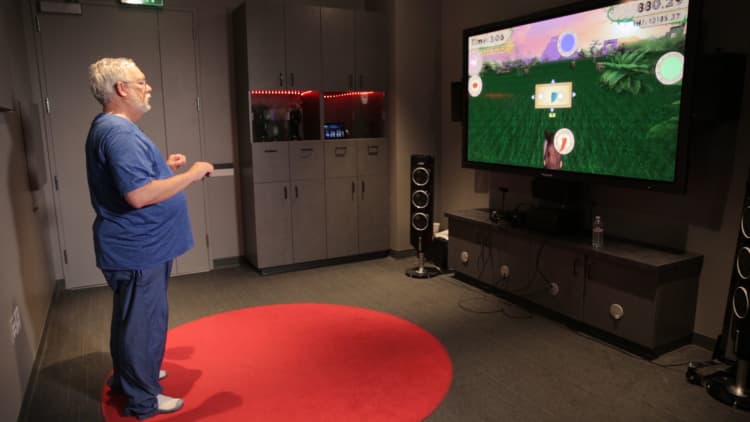Patients suffering from mental disorders ranging from depression to Alzheimer's disease may soon be able to swap their pills for video games.
Neuroscape, a research lab at the University of California at San Francisco, has spent the past eight years pursuing that mission. Now, a spin-off called Akili Interactive Labs is engaged in medical trials to get games approved by the Food and Drug Administration.
Furthest along is a game called "Project: EVO," which is currently at the last level of FDA approval as a treatment for attention deficit hyperactivity disorder, or ADHD. Akili, which is based in Boston, has also partnered with Pfizer to study how its games can detect evidence of Alzheimer's.
"Our goal here is not necessarily to boot out the pharmaceutical industry," said Adam Gazzaley, the founder and executive director of Neuroscape and an Akili board member. Rather, it's "to find new approaches that have better side effect profiles, that can be targeted in a more personal way, and then figure out how they can work with our current system," he said.
Gazzaley, a professor of neurology, physiology and psychiatry, launched a cognitive neuroscience research lab at UCSF in 2005 and has spent the last eight years pushing his research into the real world to help people with cognitive deficiencies.
In developing games, he's previously worked with LucasArts, the publisher that produced games based on the "Star Wars" and "Indiana Jones" franchises.
"Our brain's plasticity, its ability to modify itself, really responds to experience," Gazzaley said. "If we can create very targeted experiences that are also adaptive to a person, it can help improve their brain function."




